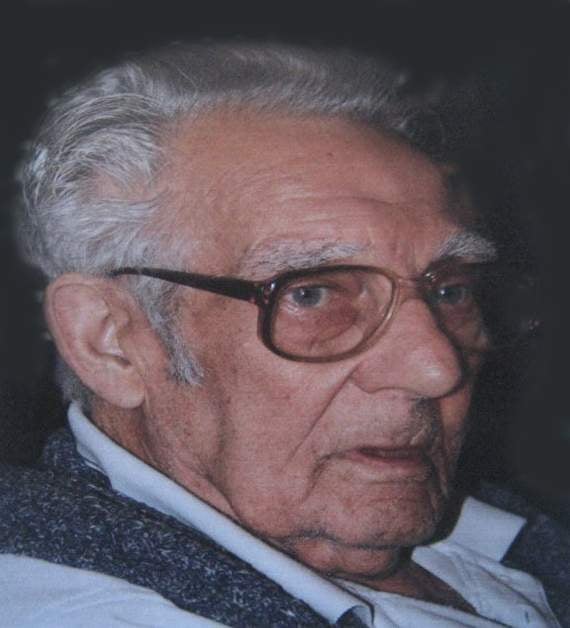FREDRICK Henry Ward, believed to be the last survivor of HMS Hunter, the British destroyer sunk in the Battle of Narvik in 1940, has died aged 97.
Mr Ward, of Victoria Street Cinderford, died peacefully in Gloucestershire Royal Hospital on January 11.
A funeral service will be held at St Stephen’s Church, Cinderford, on February 9 followed by burial at Yew Tree Brake.
As a young naval gunner, Mr Ward was one of only 45 survivors to be plucked from the icy waters of the Ofotfjord after HMS Hunter was sunk by German torpedoes on April 10, 1940.
The Hunter was one of a flotilla of five Royal Navy destroyers ranged against ten Kreigsmarine warships in the First Battle of Narvik.
Both HMS Hunter and flagship HMS Hardy were lost and the flotilla commender, Commodore Bernard Warburton-Lee, who died aboard the Hardy, was awarded the Victoria Cross - the first in the Second World war.
An account of Fred’s experience written by his son Robin takes up the story as the ship begins to sink beneath him: “The chances of surviving in this freezing Arctic sea were very slim and Fred could already see bodies floating in front of him, from the smoke and fire their heads blackened and he recalled it as seeing black heads bobbing around everywhere.
“The Hunter was on her way down, she was listing badly, nearly on her side.
“Fred was watching her radio mast; it was almost touching the water.
“Something made him look behind him and the Hunter’s Captain, Linsey de Villiers, was walking past. He looked at Fred and nodded as if to say over you go.
“The Captain then disappeared back inside the ship and was not seen again.
“Fred took off his boots and jumped in the freezing water. With his senses numbed and with the unfortunate ones floating nearby, Fred treaded water, waiting to either be picked up, or die.
“He turned to face the Hunter, which was now up on her end, sinking.
“Every ship has a name or number, the HMS Hunter’s was H35 and Fred was watching this slowly make its way towards the water line.
“He said that because of the sheer bulk of the Hunter, it looked as if she was sinking slowly but, as the H35 reached the water, it disappeared very quickly and within a few seconds she was gone.
“There was a swell in the water and then nothing; it was as if she was never there.
“Some of those who died, were buried in a graveyard nearby.
“The saddest part is that there were brave sailors trapped below decks, their exits buckled from the explosions and with no way out, they had to go down with her.
“When she left Plymouth for War, the Hunter had a compliment of 157. Only 45 were pulled alive from the freezing Norwegian waters on 10th April 1940 and of these, some would die from exposure and injuries.
“Just when Fred though he would not make it, he was picked up by a German ship.
“He was pulled from the water and remembers a German sailor walking towards him with a knife. This is when he passed out.
“When he regained consciousness, he was naked, in a bunk with only a blanket covering him. A German guard offered him some bread, which he took.
“He was marched on deck and watched as the remains of War smouldered in the fjord. He was freezing, in shock and did not know what lay ahead for him.
“He was then taken to shore as a prisoner along with the other survivors.
“They were marched through the town of Narvik with only their blankets for comfort until they reached a café called Iris, this is where they were given dry clothes and they were guarded day and night, while the Germans carried on with their campaign.
“On April 13, 1940, Fred was aroused to the sound of commotion along with gunfire and explosions.
“The café Iris overlooked Narvik fjord and he could see British Warships engaging the German destroyers, not knowing it, but Fred was witnessing the second battle of Narvik.
“There was a large British Battleship in the fjord and she was picking off the German destroyers with ease.
“She was the HMS Warspite, a formidable weapon of the British Navy. The walls of the café shook to the gunfire from the Warspite and it was not long before she and her flotilla of destroyers left, leaving the German destroyers a mangled sinking wreck.
“The Germans had lost 10 destroyers plus merchant ships during the two battles of Narvik, this would hamper Hitler’s efforts during the rest of the War and even today many still say that the two battles of Narvik gave the British Navy victory in the War.”



-x.jpeg?width=209&height=140&crop=209:145,smart&quality=75)

Comments
This article has no comments yet. Be the first to leave a comment.